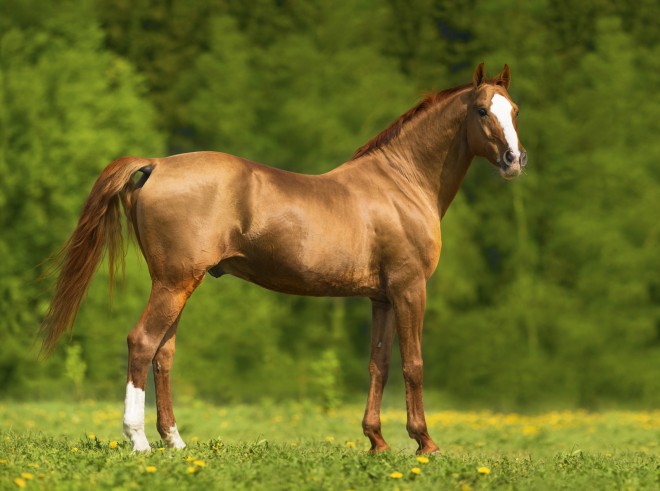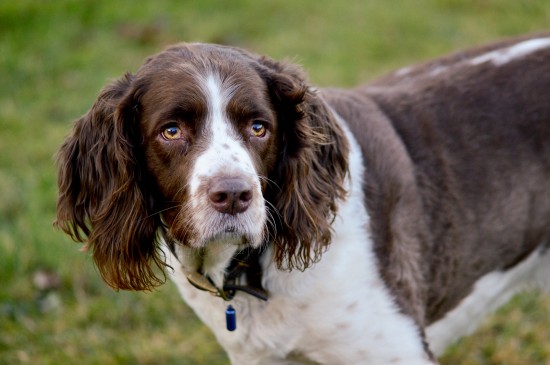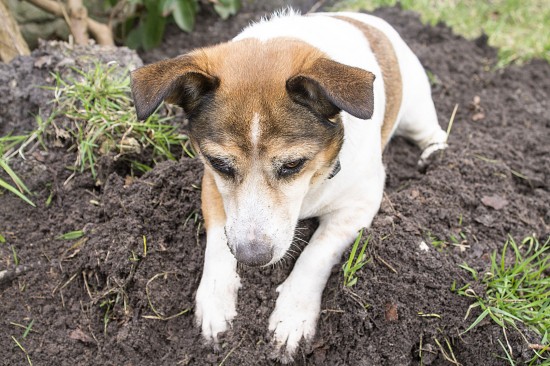

Horses are magnificent creatures and although incredibly powerful, they have very subtle ways of communicating with each other. People have come to realise just how important it is to “read” their horses which involves understanding their body language.
A slight lift of a hind foot could well be a little warning to keep away or teeth chomping may well indicate a horse is not that happy about something which, if you quickly pick up on could prevent a nasty incident from happening whether a horse is directing this kind of behaviour toward another horse or a person.
If you are new to being around horses, it can be quite hard to pick up on the more subtle signs that a horse displays when they are not feeling very comfortable about things. On top of this, many horses learn that if they pin their ears back, people will leave them alone which is very true of many riding school ponies and horses.
The problem really starts when a horse follows through on a threat which could end up with a person getting bitten or even kicked. If a horse or pony, shows any threatening behaviour, it is far better to keep your distance and to ask whoever runs the stable about the horse or pony in question to find out the reason why they are acting so aggressively.
Some horses once they've had a head-collar put on them, change their outlook on life turning into much nicer characters and the same can be said when they have a bit in their mouths. However, a lot of “learned” behaviour is all about horses quickly understanding that by behaving in a certain way means they can get out of doing something which includes having to any work. This includes cantering away to the far end of a paddock as soon as they see someone with a head-collar in hand approaching the gate.
Learned behaviour is unlike any natural behaviour that horses typically exhibit toward each other because where the latter is concerned, this is governed by instinct something which our fleet footed friends have developed over centuries of living in the wild.
Like most animals, horses are very much creatures of habit. They like things to be consistent which means being fed at the same time of day and having a set routine in place. They learn by repetition so if they are allowed to get away with anything, they quickly learn both the good and the bad things which sadly can include some unwanted behaviours which develop into real problems.
Ponies can be very naughty because all too often children don't have enough physical strength to prevent their mounts from doing things they should not. A classic example being when ponies drop their heads to the ground so they can munch on the lush grass along a verge as they are being ridden along. An adult put in the same situation would be able to sit deep in the saddle and kick their mounts on while gathering up their reins. A child on the other hand, has much shorter legs and therefore they typically find it a lot harder simply because of their size and weight.
It would be fair to say that horses will generally give you a warning before they act aggressively towards you. This could include pinning their ears back on their heads or making a face at you while rolling their eyes. They might tuck their hind quarters in as if they are about to kick out with their back legs or they may threateningly lift a hind foot.
Some horses learn to swing their hind quarters around at you as a warning to keep away, but whatever they do it has to be seen as a warning which means you need to be extra careful when you are around them.
However, when horses are scared by anything they may react in certain ways which might be mistaken for naughty behaviour. The thing you need to bear in mind is that horses are “flight animals” which in short means if they feel they are in danger or threatened in any way, they will choose to run away rather than stand and confront the situation.
They will gallop away to a certain distance before stopping to turn around so they can investigate what it was that frightened them. If they feel the threat is still there, they will turn and run again which is all down to an instinctive desire to survive. The one thing you will notice is that when a horse is scared, they make themselves bigger and they typically snort loudly, unlike many other animals that tend to cower trying to make themselves as small and as insignificant as possible.
Being around horses means taking care and be watchful as to what is going on around you whether you are on their backs on standing close to them on the ground. Should a horse swing around for any reason and you are next to them, they could easily knock you over. If you're in the saddle, you run the risk of being unseated if you're taken by surprise. In short, learning to “read” a horse or pony is very important if you are planning to spend any time around them.
 Is A Springer Spaniel The Right Choice Of Dog For You?
Is A Springer Spa
Is A Springer Spaniel The Right Choice Of Dog For You?
Is A Springer Spa
 How To Stop Your Dog From Destroying Your Garden
How To Stop Your
How To Stop Your Dog From Destroying Your Garden
How To Stop Your
 Adopt A Shelter Pet – What Steps Do You Need To Take?
If you and your family are looking to adopt a new pet for yo
Adopt A Shelter Pet – What Steps Do You Need To Take?
If you and your family are looking to adopt a new pet for yo
 How To Care For A Dog After They Have Been Neutered
How To Care For A
How To Care For A Dog After They Have Been Neutered
How To Care For A
 Great Pyrenees Grooming Tips – Special Techniques for Large Breed Dogs
Great Pyrenees Grooming Tips – Special Techniques for Large Breed Dogs
Copyright © 2005-2016 Pet Information All Rights Reserved
Contact us: www162date@outlook.com